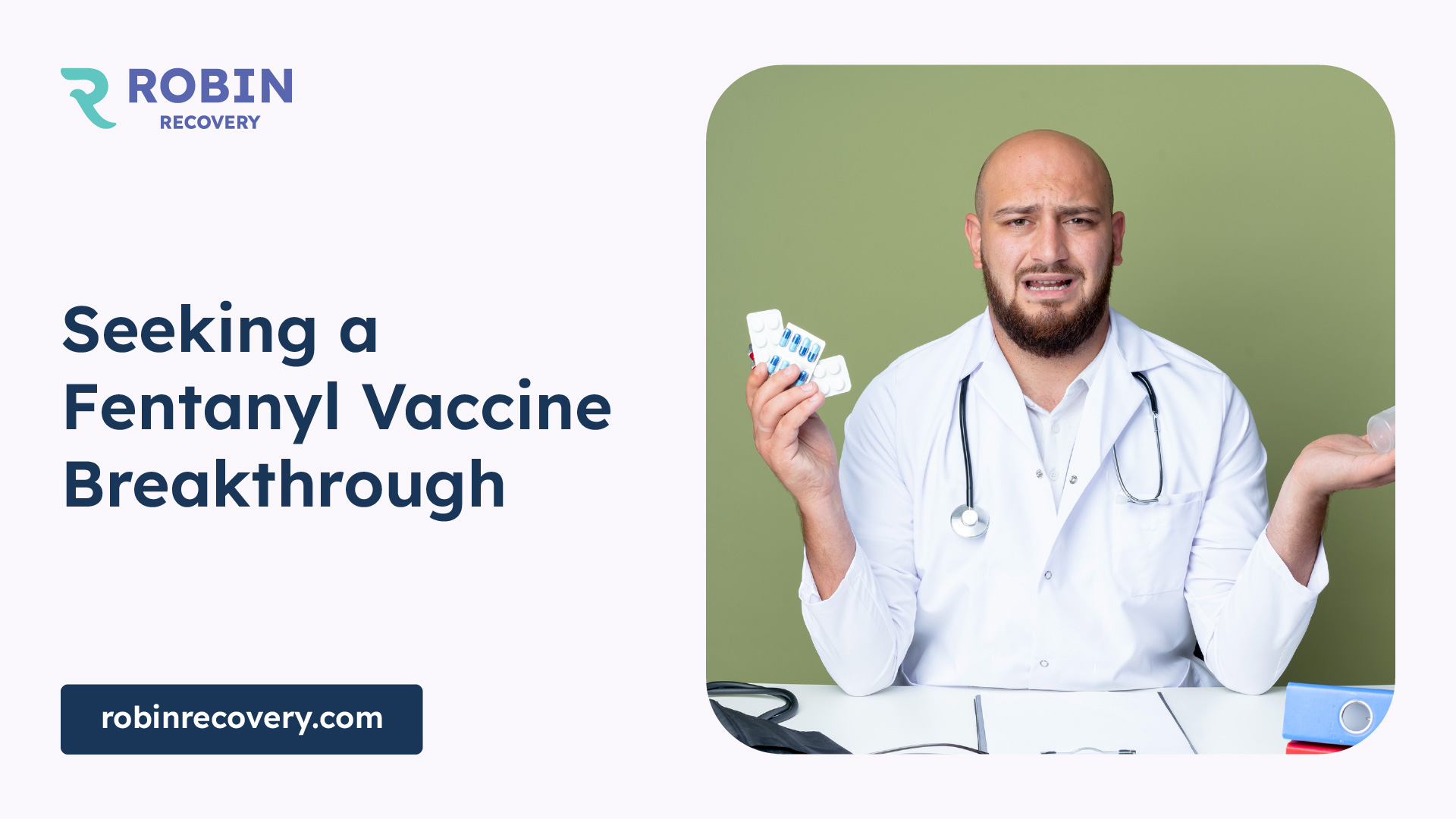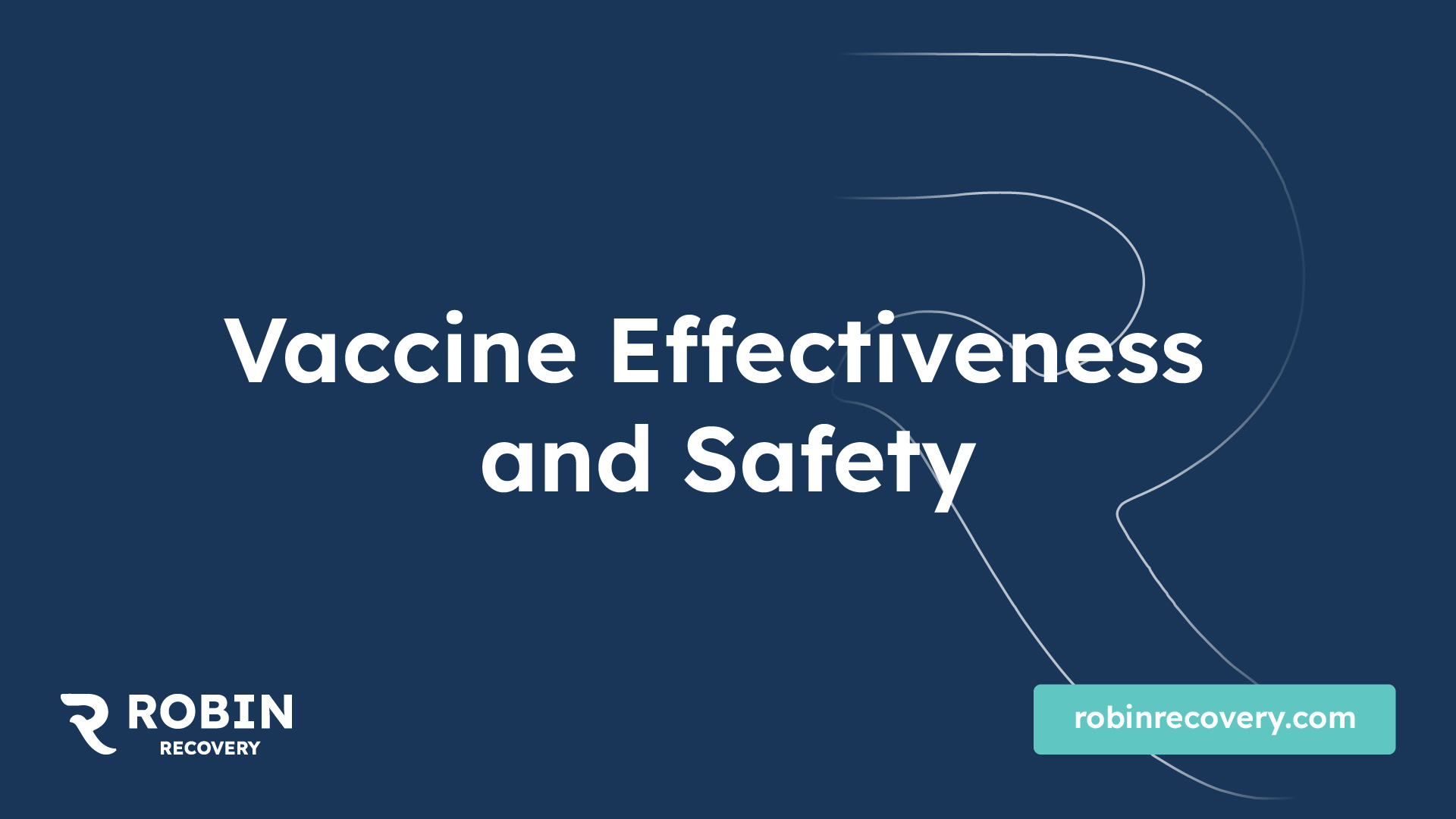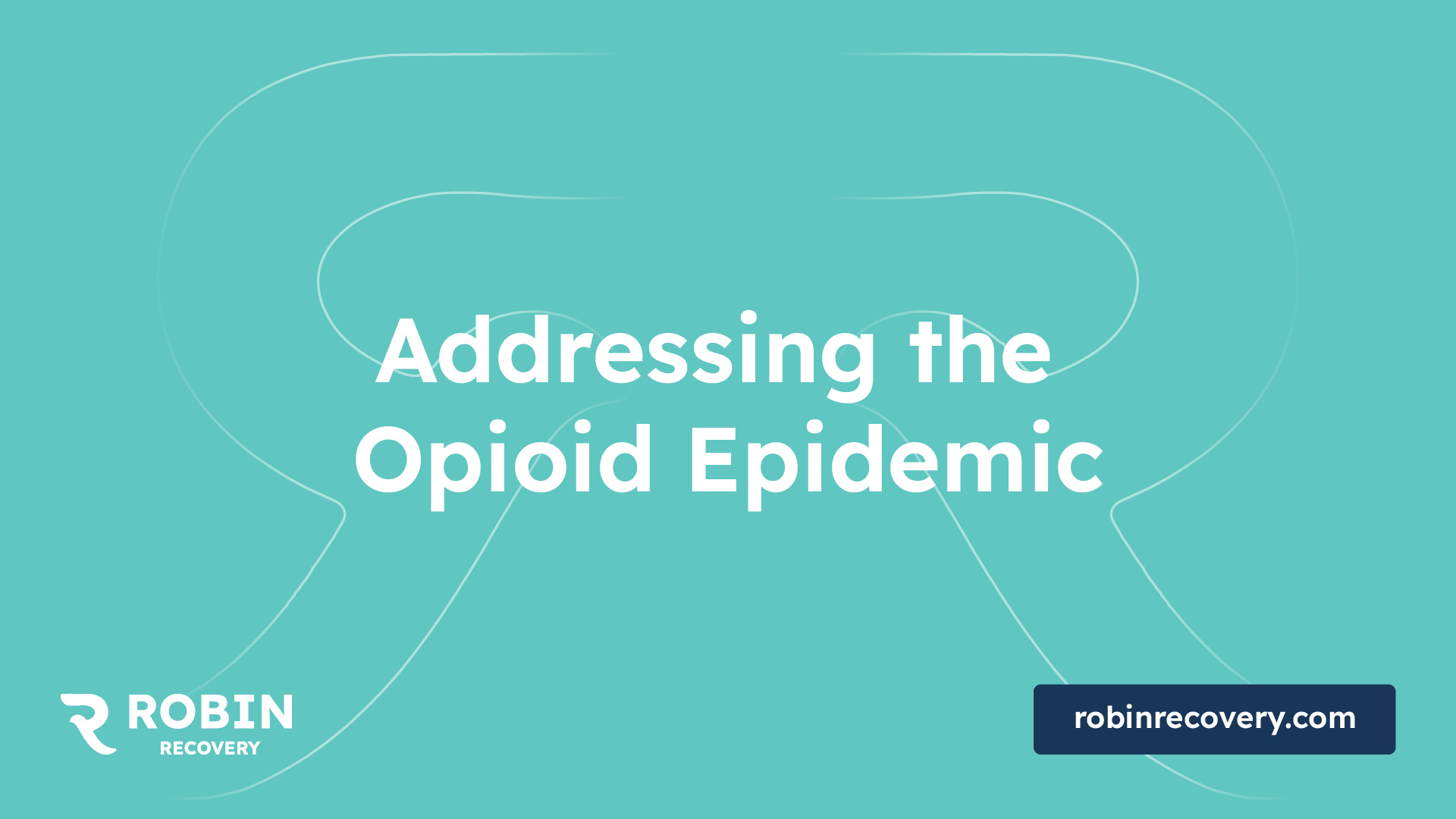Seeking a Fentanyl Vaccine Breakthrough


The Quest for a Fentanyl Vaccine
Researchers and scientists are tirelessly working towards a breakthrough in the development of a fentanyl vaccine. As the opioid crisis continues to devastate communities, finding a vaccine that can prevent fentanyl overdose is of paramount importance.
Advancements in Vaccine Development
In recent years, significant advancements have been made in the field of vaccine development to combat the fentanyl crisis. Research teams, such as those at the University of Montana and the University of Houston, have been at the forefront of this endeavor.
The University of Montana researchers, in collaboration with partners, are close to conducting human trials for vaccines aimed at preventing fentanyl and heroin drug overdoses. Their goal is to protect individuals struggling with drug addiction or at risk of accidental overdose. In 2021 alone, over 106,000 U.S. drug overdose deaths were reported, with 71,000 attributed to synthetic opioids like fentanyl [1].
The research team at the University of Houston has developed a vaccine specifically targeting fentanyl. This breakthrough vaccine aims to prevent fentanyl from entering the brain, potentially eliminating the drug's euphoric effects. This development offers hope as a relapse prevention agent for individuals attempting to quit opioid use [2].
Importance of Fentanyl Vaccines
The importance of developing effective fentanyl vaccines cannot be overstated. Fentanyl, a synthetic opioid, is incredibly potent, being 50 times stronger than heroin and 100 times stronger than morphine. Even a minuscule amount of fentanyl, as little as 2 milligrams, can be fatal depending on an individual's size. Synthetic opioids, including fentanyl, contribute to the deaths of over 150 people daily.
By developing a fentanyl vaccine, it becomes possible to neutralize the drug and prevent its effects on the brain. This breakthrough would provide a critical tool in combating the opioid crisis, offering hope to individuals struggling with addiction and reducing the risk of accidental overdose.
The National Institutes of Health (NIH) recognizes the urgency of finding a solution to the opioid crisis and has fully funded research efforts. The NIH has awarded a $33.4 million contract to the University of Montana to develop and advance two candidate anti-opioid vaccines through Phase 1 clinical trials. This work is supported by the NIH Helping to End Addiction Long-Term (HEAL) initiative, emphasizing the importance and commitment to finding a fentanyl vaccine.
As the quest for a fentanyl vaccine continues, researchers are optimistic about the potential impact it could have on saving lives and curbing the opioid epidemic. However, further research, clinical trials, and regulatory approval are necessary steps on this journey toward a breakthrough.
Research and Clinical Trials
The development of a fentanyl vaccine breakthrough is an ongoing and promising area of research. In this section, we will explore the progress made in human trials and the components and mechanism of these vaccines.
Human Trials Progress
Researchers are making significant strides in the development of fentanyl vaccines. The first vaccine targeting heroin is expected to enter Phase I clinical trials soon, followed by a fentanyl vaccine. The goal is to eventually develop a combined multivalent vaccine targeting both heroin and fentanyl. Human trials for these vaccines are projected to commence in early 2024 [1].
The research team at the University of Washington, led by Dr. Marco Pravetoni, is at the forefront of this innovative work. They design haptens and drug conjugate vaccines to stimulate the production of antibodies against target opioids. These vaccines aim to neutralize the target opioids while preserving critical medications used in the treatment of opioid addiction and overdose reversal [1]. The National Institutes of Health (NIH) has fully funded the research efforts at the University of Montana, with a $33.4 million contract awarded to develop and advance two candidate anti-opioid vaccines through Phase I clinical trials. This work is supported by the NIH Helping to End Addiction Long-Term (HEAL) initiative.
Another research team, collaborating with Virginia Tech, is utilizing the latest vaccine technologies to develop a new fentanyl vaccine. Additionally, a team funded by the NIH HEAL Initiative is currently testing a heroin vaccine in humans [3].
Vaccine Components and Mechanism
Fentanyl vaccines are designed to elicit an immune response that can neutralize the effects of fentanyl. Researchers are working on developing vaccines that target fentanyl specifically, preventing it from entering the brain and eliminating its euphoric effects. One such breakthrough has been achieved by a research team at the University of Houston. Their vaccine could serve as a relapse prevention agent for individuals attempting to quit opioid use.
The vaccines under development typically utilize a combination of haptens and adjuvants. Haptens are small molecules that mimic the structure of the target opioid (in this case, fentanyl) and stimulate the production of antibodies. Adjuvants are substances added to vaccines to enhance the immune response and promote the production of more robust and long-lasting antibodies.
The specific mechanism by which these vaccines work involves the production of antibodies that bind to fentanyl molecules, preventing them from binding to the brain's opioid receptors. This action can potentially eliminate the euphoric effects of fentanyl and reduce the risk of opioid addiction and overdose.
The research and clinical trials conducted by these dedicated teams bring hope for a future where fentanyl vaccines can be utilized as a vital tool in combating the opioid epidemic. However, further research and testing are necessary to fully understand the effectiveness and safety of these vaccines.

Vaccine Effectiveness and Safety
When it comes to combating the devastating effects of fentanyl addiction, a breakthrough in the form of a fentanyl vaccine offers hope. The effectiveness and safety of such a vaccine are crucial considerations in its development and implementation.
Preventing Fentanyl Overdose
The primary objective of a fentanyl vaccine is to prevent fentanyl overdose, which can lead to respiratory suppression and even death. By generating specific antibodies against fentanyl, the vaccine aims to block the drug from reaching the brain and causing its lethal effects. This approach holds promise in reducing the harm caused by fentanyl abuse.
Specificity and Cross-Reactivity
One important aspect of a fentanyl vaccine is its specificity. The anti-fentanyl antibodies generated by the vaccine should be specific to fentanyl and its derivatives, without cross-reacting with other opioids like morphine. This specificity allows vaccinated individuals to still receive treatment for pain relief with other opioids if necessary. It ensures that the vaccine's effects are targeted towards fentanyl while preserving treatment options for individuals who may require alternative pain management strategies.
Ensuring the safety of the vaccine is paramount. During laboratory studies, the vaccine developed by a research team did not cause any adverse side effects in immunized rats. This is an encouraging sign as plans are underway to produce a clinical-grade vaccine, with human clinical trials scheduled to commence soon. Rigorous testing and evaluation are essential to assess the vaccine's safety profile in humans.
By targeting fentanyl specifically and minimizing the risk of cross-reactivity, a fentanyl vaccine aims to provide an effective and safe solution to combat fentanyl addiction. Continued research and clinical trials will further contribute to our understanding of the vaccine's effectiveness, safety, and potential impact in addressing the opioid epidemic.
Vaccine Adjuvants
In the quest for a fentanyl vaccine breakthrough, researchers are exploring the use of vaccine adjuvants to enhance the immune response and improve the effectiveness of anti-addiction vaccines. Two notable adjuvants that have shown promise in fentanyl vaccine development are the INI-4001 adjuvant and the dmLT adjuvant.
INI-4001 Adjuvant
The University of Montana team has developed a patented adjuvant called INI-4001, which has shown potential in enhancing the vaccine response and providing stronger and more durable immunity. This adjuvant, collaboratively optimized with various institutions, has been instrumental in advancing anti-opioid vaccines to human clinical trials. The goal is to develop a fentanyl vaccine that can effectively combat addiction and reduce the devastating impact of the opioid epidemic.
dmLT Adjuvant Contribution
Another significant adjuvant in fentanyl vaccine development is the dmLT adjuvant. This adjuvant, derived from E. coli, has been developed by collaborators at Tulane University School of Medicine. The dmLT adjuvant enhances the immune response to vaccines and plays a crucial role in the effectiveness of anti-addiction vaccines, including fentanyl vaccines. By incorporating the dmLT adjuvant, researchers aim to improve the vaccine's efficacy and generate a robust immune response against fentanyl addiction.
The use of these adjuvants in fentanyl vaccine development shows promise in creating effective vaccines that can aid in the treatment and prevention of fentanyl addiction. Adjuvants play a vital role in enhancing the immune response and ensuring the longevity of vaccine-induced immunity. Continued research and development in this area may pave the way for breakthroughs in combating the opioid epidemic and providing hope for individuals affected by fentanyl addiction.

Addressing the Opioid Epidemic
The opioid epidemic, fueled by the rise of synthetic opioids like fentanyl, has had a devastating impact on overdose deaths and public health. Efforts to combat this crisis have become increasingly urgent, leading researchers to explore the potential of a fentanyl vaccine as a breakthrough solution.
Impact on Overdose Deaths
Synthetic opioids, particularly fentanyl, have emerged as the primary drugs involved in overdose deaths. In 2019, fentanyl was implicated in over half of all lethal overdoses, making it the leading cause of overdose deaths for US adults aged 18-45 years. The period from 2020 to 2021 witnessed a staggering number of over 100,000 overdose deaths, further emphasizing the pressing need for effective interventions [4]. The rise in fentanyl-related overdose deaths has become a critical public health concern, necessitating innovative approaches to reduce harm and save lives.
Challenges and Future Prospects
Addressing the opioid epidemic and developing a fentanyl vaccine presents numerous challenges. The ongoing COVID-19 pandemic has strained public health and healthcare systems, complicating efforts to combat the overdose crisis. Additionally, the rising mortality rates highlight the urgency for new strategies to complement existing control measures.
While a fentanyl vaccine shows promise in reducing overdose deaths, its adoption may face obstacles. Convincing individuals, especially those with severe opioid use disorder (OUD), to receive the vaccine could be challenging. Factors such as lack of health insurance, income instability, and vaccine hesitancy post-COVID may impact the willingness of vulnerable populations to embrace the vaccine [5].
Despite these challenges, researchers and healthcare professionals remain committed to finding solutions to the opioid epidemic. The development of a fentanyl vaccine, one that induces fentanyl-specific antibodies to block the drug's effects on the brain, holds promise in preventing lethal respiratory suppression. Vaccine strategies may incorporate the use of adjuvants, such as the INI-4001 adjuvant and the dmLT adjuvant, to enhance the immune response and create a durable defense against fentanyl [6].
By addressing the opioid epidemic and exploring breakthroughs such as a fentanyl vaccine, there is hope for reducing the devastating impact of fentanyl overdose deaths. Continued research, public awareness, and collaboration among healthcare professionals, policymakers, and communities are essential to combatting this crisis and saving lives.
Public Perception and Adoption
As the quest for a breakthrough in fentanyl vaccine development continues, it is crucial to consider the public perception and adoption of such vaccines. Understanding the perceived benefits, concerns, and challenges in vaccine uptake can help guide future efforts in addressing the fentanyl addiction crisis.
Perceived Benefits and Concerns
According to a study conducted by the NCBI, participants showed positive responses to the concept of a fentanyl vaccine. They expressed a preference for a vaccine offering lifelong durability. The perceived benefits of a fentanyl vaccine included the potential for a life-saving intervention, averted suffering, saved healthcare dollars, and the utility of a passive harm reduction strategy.
However, concerns were also raised regarding the safety and efficacy of the vaccine. Some individuals worried about the implications for future pain management, potential stigma, and the need for supportive counseling and personalized decision-making. It is important to address these concerns through transparent communication and education about the benefits and limitations of a fentanyl vaccine.
Challenges in Vaccine Uptake
Despite the potential benefits of a fentanyl vaccine in reducing overdose deaths, convincing individuals, especially those with severe opioid use disorder (OUD), to get vaccinated may pose challenges. Factors such as lack of health insurance, income instability, and vaccine hesitancy post-COVID could impact the adoption of the vaccine among vulnerable populations.
Engaging individuals with substance use disorder in monitoring vaccine efficacy and tracking vaccination among this population can be challenging. Additionally, concerns were raised about the impact of limited vaccine durability on pain management. Overcoming these challenges will require comprehensive strategies that address access barriers, provide education and support, and foster trust between healthcare providers and individuals with OUD.
Efforts to address the fentanyl addiction crisis have been further complicated by the effects of the COVID-19 pandemic on public health and healthcare systems. Rising overdose mortality indicates the urgent need for new approaches to reduce overdose, complementing existing measures [4].
While the development of a fentanyl vaccine is promising, it is important to note that it could take several years before a viable product is available to the public. Researchers hope to complete their work within two to three years, but the transition from animal studies to human trials and further regulatory processes present potential challenges.
By addressing the concerns, providing education, and addressing the challenges in vaccine uptake, it is possible to foster public acceptance and adoption of a fentanyl vaccine. Continued research, collaboration, and public engagement are essential in the quest for a breakthrough that can help combat the fentanyl addiction crisis and save lives.
References
[1]: https://www.umt.edu/news/2023/08/082923fent.php
[3]: https://heal.nih.gov/news/stories/OUD-vaccine
[4]: https://www.ncbi.nlm.nih.gov/pmc/articles/PMC9376272/
[5]: https://www.bicyclehealth.com/opioid-education/fentanyl/vaccine-breakthrough
